
Empordà 2022
Day 1
It’s strange being happy waking up at 4 in the morning, but when the reason is for heading to one of the fine wine regions of Europe you can’t be anything but be happy! We did Stavanger- Amsterdam- Barcelona without hick-ups and installed ourselves at the hotel (Rialto) just in time to find a place for lunch. Maybe hunger or laziness, but we picked the restaurant next door (VO Tapas). We were happy we did; it was a good choice.



The same evening the first pre-planned event took place at Vila Viniteca with Imanol Ortiz as our host and sommelier. We were seated in their cellar and Imanol took us on a tour of wines and food representing the region. A very pleasant experience and with a sommelier that invited to enlightening discussions. See also wine- tasting notes for Vila Viniteca.








Day 2
Earlybirds today as well, and we were on the train service for Sant Sadurní d’Anoia at 8:45. After arrival another 10 minutes of walk and we entered the premises of Recaredo. Shortly thereafter we were taken by our host Lluba and headed for their vineyard Serral del Vell. During the ride we got a thorough introduction to Corpinnat. Walking through the fields we learned about the soil, grape-varieties, ways of farming and innovative approaches to bug control using bats and pheromones. The grand final of the outing was a sandwich together with a taste of their sparkling wine, made of grapes from this vineyard, and with a view towards Montserrat.
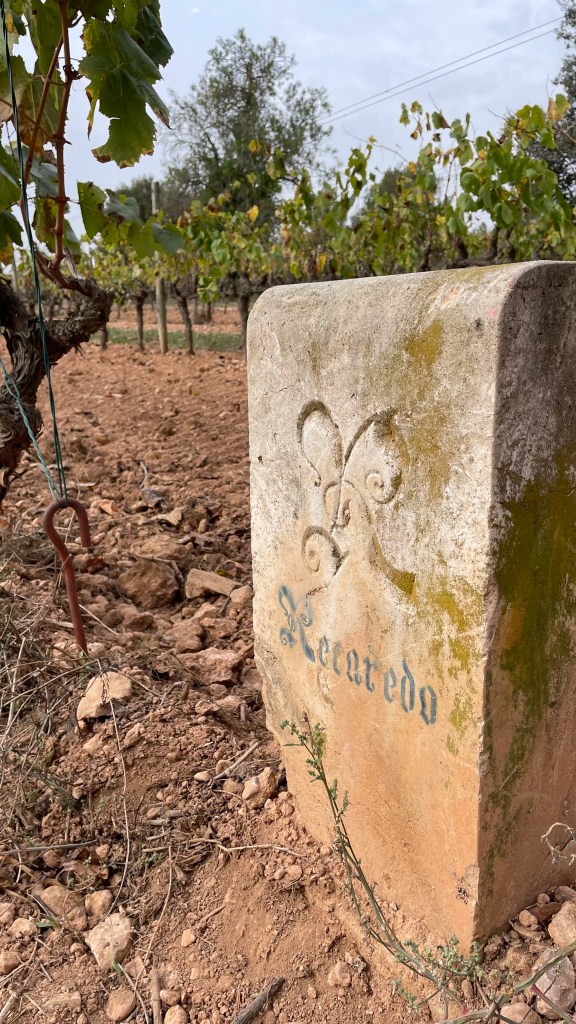




Back to the winery we were given the tour through their cellar. We learned about their use of natural corks while aging their sparkling wine. The final bottling includes daily manual riddling for several weeks followed by a manual disgorgement when removing yeast residuals. At the end of the walk, we were treated with a disgorgement of a ready to consume Reserva Particular (2013). What a way to end the tour of the cellar. For a final stop Lluba took us to one their tasting rooms, and we were treated with an impressive array of sparkling to nature- still wines. Lluba is passionate about wines and Recorado, and with her enthusiasm, knowledge, and language skills she was the perfect host. She suggested us to return in 2024 for Recaredos 100th anniversary and the annual “Festa de la Filoxera” and the Cava festival… very tempting! See also wine- tasting notes for Recaredo.






After spending more time than expected at Recaredo, Lluba suggested Cal Ticus for a late lunch. A small but friendly restaurant that offered a three-course meal with selections including local dishes. Being well fed and happy we returned to Barcelona.
Day 3
Already at 8 Enric Catala (Taca de vi) picked us up at La Rambla, and drove us into Emporda. Our first stop was Perelada. This is by far the largest winery and producer in Emporda and is behind 1/3 of all bottled wine from the region. The winery benefits from vineyards (fincas) spread around northern Emporda, and a recognized wine maker. The current winery is a recent construction and used a recognized architectural company (RCR) for fulfilling the visions of the owners. Ana, the guide for the day, took us through a labyrinth of displays, and production and storage halls. Our wine club was impressed by the scale of operation, and of course the overall approach and details in the construction. For the tasting we went through a range of wines and we were thrilled about the quality and variations. A splendid start on our Empora adventure. See also the wine- tasting notes for Perelada.




The second stop was La Vinyeta, a much smaller vineyard but as it turned out an explosion of impressions. Josep Serra, the owner, and the winemaker, took us for a walk through the surrounding fields. He keeps bees, chickens, and allows a trekking(!) herd of sheep to grass in between the vines during spring and after harvest. All of this for the benefit of the grapes! His stories about how he and his wife obtained, develops, and runs the vineyard are fun, impressive, fascinating all at the same time.

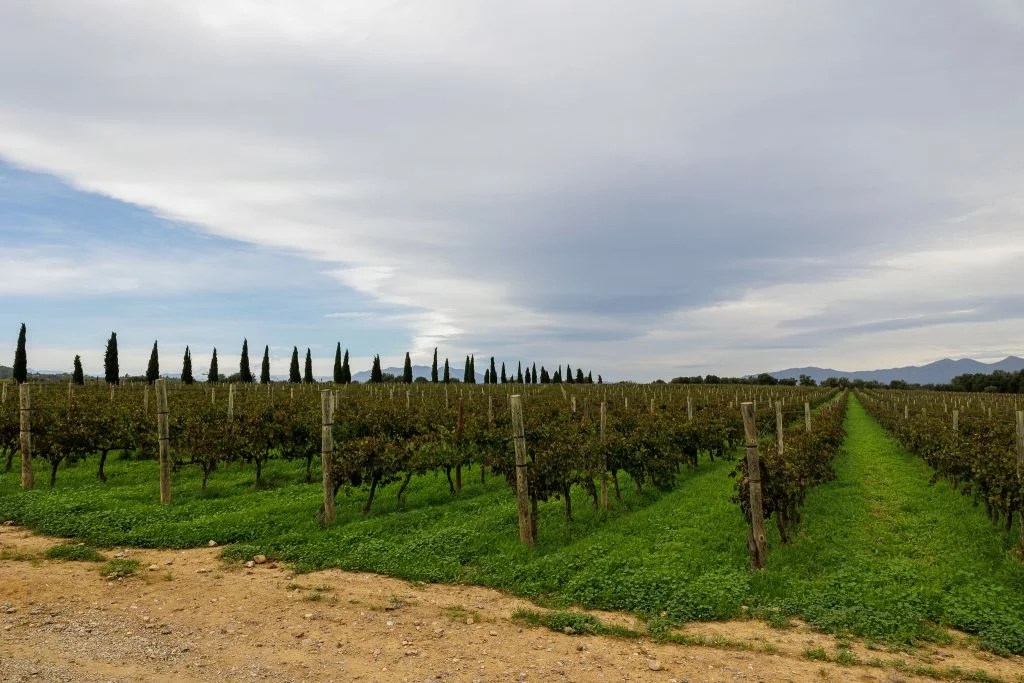


We were taken to an outdoor terrace where Catalonian food had been prepared for us. We now had a combined lunch and taste event and where Josep gave a splendid introduction to most of their wines. The wines reflected the winemaker and were both enjoyable and of a high quality. See also the wine- tasting notes for La Vinyeta.



After leaving the vineyards we drove to Cadaques where we were to spend the next two nights at Hostel Marina, a low-key place but with very nice rooms. We arrived before sunset and used the opportunity to have a beer(!) at a beach bar and a walk around the beach and the city. That night we had dinner at Restaurant Es Baluard. A splendid place for fish lovers but also for people in love… judging by the other guests in the restaurant that night!






| About Enric. Enric, who is based close to Barcelona, had pre-arranged the visits at the vineyards and he also did all the driving. Travelling together with a sommelier that knows the region and the wineries really helps a wine club like ours to maximize learning from all visits we made. It also helps that Enric is easy going, friendly and service minded. Enric operates through his own company Taca de vi. |
Day 4.
We meet Enric at 9. We’re getting spoiled! The first visit is at Vinyes del Aspres located close to the mountains. We are met by David Molas. David took us on a short trip in his vineyard, and we learned that wild-boars can ruin a vineyard by consuming all the grapes. Aspres therefore fence off most of their fields. David let us know that the property includes forests containing cork-trees. Apparently, Catalonia have a significant share of the supply of cork for the wine industry. We also learned about the Tramontana, the sudden and violent winds from the mountains.




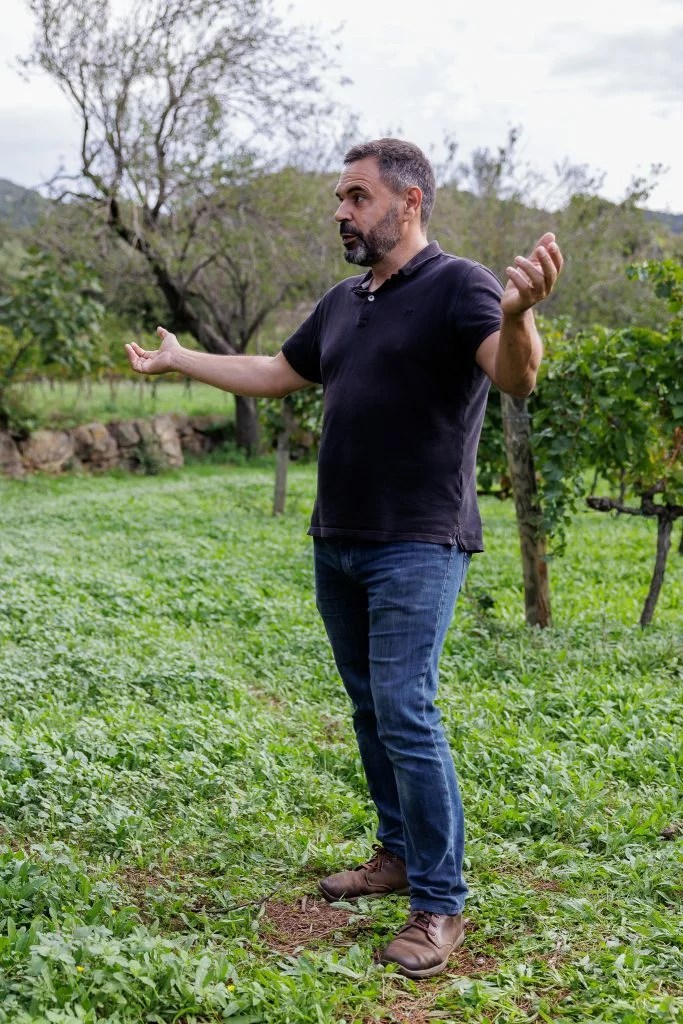
After a tour of the older parts of the farm, that gave an impression of real old style wine production, we ended up on a lovely deck with a view of the local surroundings. The wine tasting also proved lovely and the mood of the club was high. See also the wine-tasting notes for Vinyes del Aspres.







The next stop was Vinyes d’Olivardots and were we met Mireia. She took us for a short walk out into the vineyard, explained the soil and grape varieties and introduced us to infusion by using natural herbs/plants such as camomile and nettles for e.g. bug fighting and making the vines more resistant to heat.




We were given the tour of winery and learned that sustainability thinking includes the whole production process and even the treatment wine tourists as ourselves. Mireia conducted a relaxing but inspiring taste event and we were intrigued by the elegancy of their wines. Olivardots is a mother- daughter operation that apparently inspires to both high quality of their range of wines but also product innovation. We leave the Olivardots inspired but also with a feeling that the future of wine will be exciting and thanks to wineries like Oivardots. See also the wine- tasting notes for Vinyes d’Olivardots.




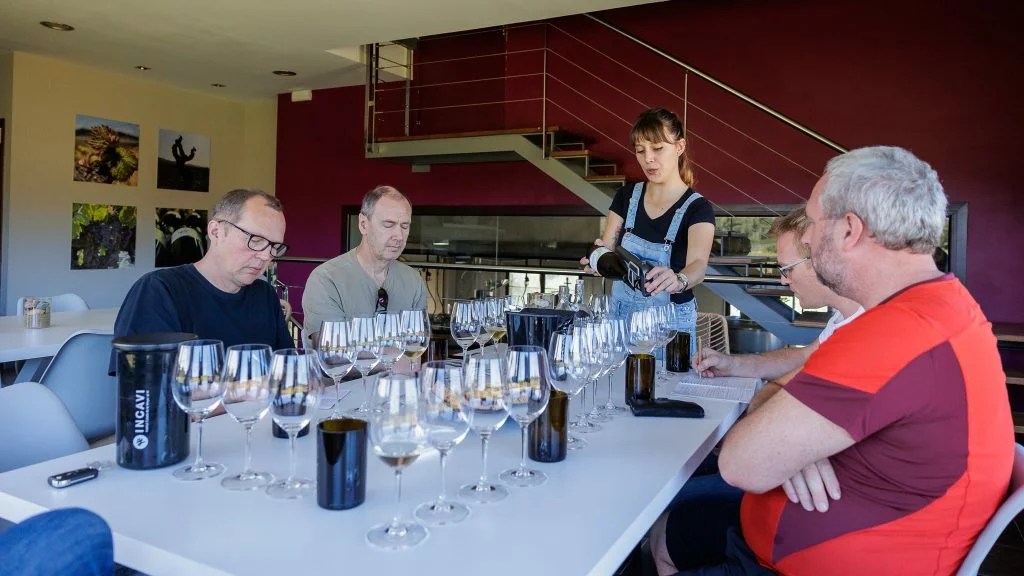

| About Organic/biodynamic. A common thread for all vineyards visited this trip is their focus on organic/biodynamic and sustainable operation. The latter also underscored by the fact that the wine producers are genuinely concerned about the nature on all scales, from the forests and pastures around their own vineyards to global warming. The Catalonian biodynamic approach seems successful, a success that likely originates from the simple fact that many parts of Catalonia are ideal for growing grapes! |
This afternoon we were tourists and made stops at the medieval villages of Pals and Peratallada. Charming places and possibly ideal to visit this time of year, i.e. mid-October. Pleasant temperatures and less crowded. Later the night we have dinner at restaurant l’Esculapi in St Marti d’Empuries.



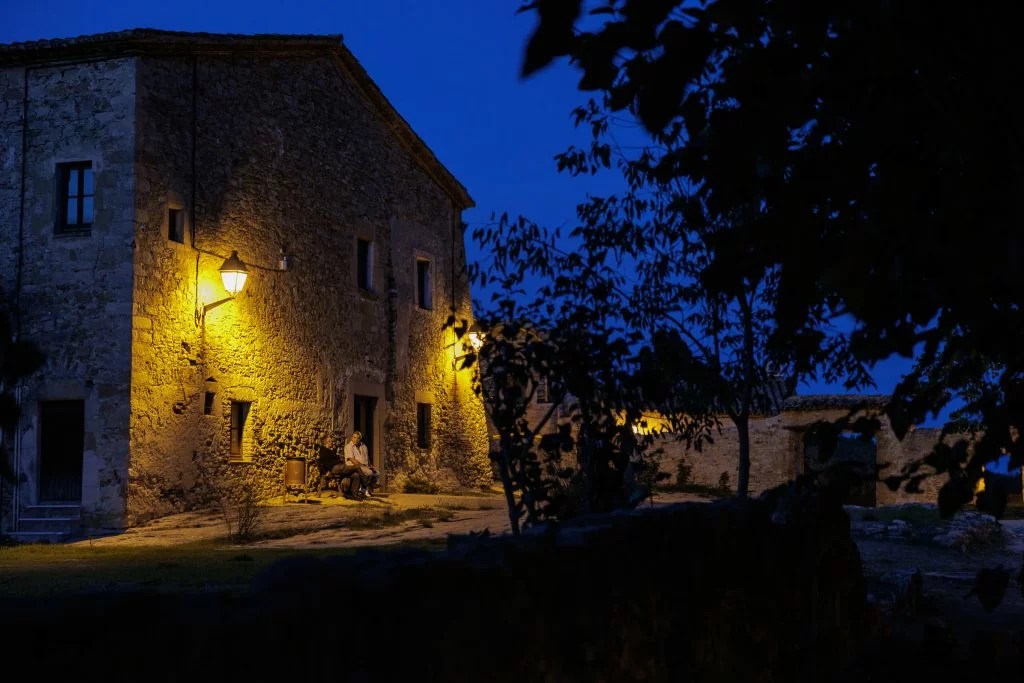

Day 5.
This final day we headed for Clos d’Agon. in the hills of Calonge. Getting to the winery was one of the more spectacular drives of this trip; both because we made a wrong turn but being close to a nature reserve puts restrictions on road restriction and even maintenance. Upon arriving we were greeted by Norah. The winery was an architectural statement, and in line with sustainable thinking the use of gravity for wine production was exploited by the winery. The wine tasting was here combined with a beautiful lunch in a lovely outdoor setting. Norah gave a nice description of their products, and their flagship wine was a perfect final tasting of a perfect trip. See also the wine-tasting notes for Clos d’Agon.








The temperature for most days during our Catalunya visit hit a maximum of mid to high twenties. This was unseasonably high even for Catalonia, and we took it as a reminder of global warming. For us arriving from the high north it was anyway nice to revisit the summer. We also benefited from recent rainfall that had made the nature lush and green, and not the dried-up vegetation and soil present for most of the summer of 2022. The impression is that the grapes of Catalonia has done well in 2022, but the yield has been relatively low. It will be fun to follow the Catalonian 2022 vintage in the years to come.
| On Emporda wines We asked Enric to give some general comments on Emporda wines: Emporda is a small region where most of the production is concentrated by Castell de Perelada and the cooperatives. That means that there are only a few private wineries/projects that produce limited but high-quality wines. As a typical Mediterranean wine region, the winemakers focus on producing wines with the traditional varieties such as Grenache, Carignan, White Grenache… and secondary actors like Syrah and Cabernet Sauvignon. Clos d’Agon is an exception. Little by little winemakers are following the tendency to make less concentrated wines with less skin extraction (shorter macerations) to make fresher and more pure wines. Also by using bigger and less new barrels, they can achieve this goal. Most of the winemakers also experiment with different materials (clay, concrete, foudres) to make more pure wines. Most of the small and medium producers are concerned about their role in making the world a bit more sustainable. In this sense, they try to work as organic as possible, not only with organic farming but also using some biodynamic techniques. Being in a Mediterranean climate also helps in this goal. |
About
Joa Vinklubb, in the city of Sola in Norway, is a neighbourhood association consisting of five fine men sharing an interest in wine. The club has been in operation since 2009, and with regular tasting events. Usually with a serious/ scientific tasting but followed up with a nice meal when the official program of the evening is over. The club even has an annual dinner where the wives can participate. Every two years the club visits a different wine region; so far Catalunya (2013), Piemonte (2015), Pfalz (2017), Duoro/Vihno Verde (2019) and Catalunya II (2022).
 Svein Erik |  Ivar |  Morten |
 Tore |  Karl Petter |

